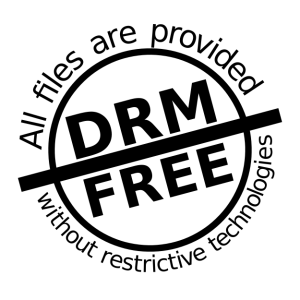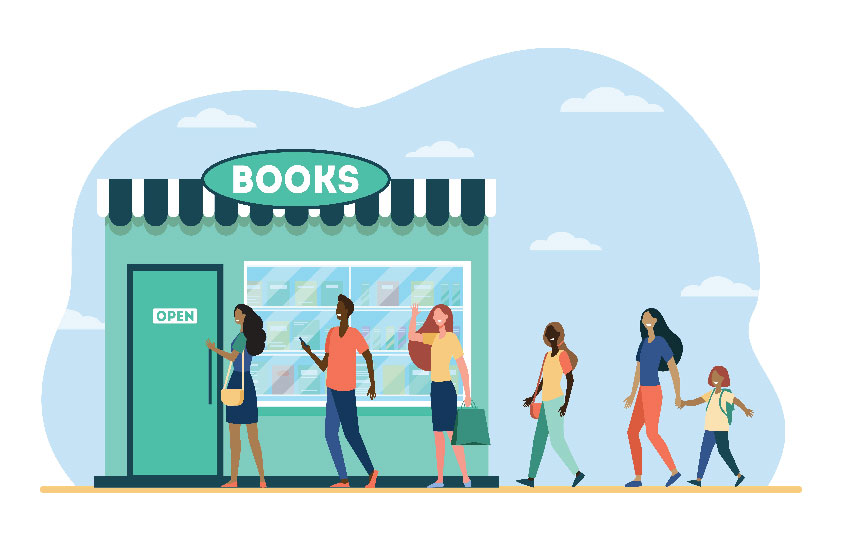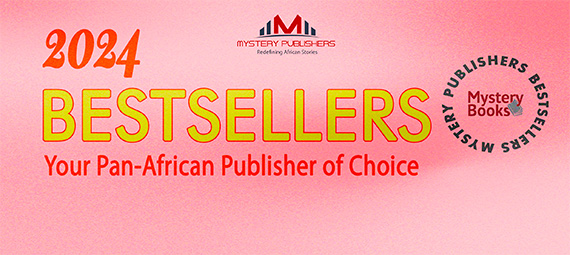Every other day, a neophyte writer contacts us asking about how we will protect their works against piracy. Our answer is always the same: we don’t offer anti-piracy guarantee to their works. There are many ways of protecting books, and one of them is DRM for digital books. We are yet to see a book that cannot be photocopied or scanned, so, we won’t talk about that. So, this article is to debunk the myth about digital book protection and a reality check for the jittery, paranoid writers who would rather their manuscripts grew mould than publish to have them pirated.
DRM stands for Digital Rights Management. DRM refers to schemes in which a digital book is copy-protected, or limited to reading on only certain devices. On the other hand, piracy is a crime, punishable by Kenyan law.

There are three types of piracy that concern authors:
- The criminal takes your book and tries to sell it (for profit). They might even pass it off as their own by putting their own name on it, or they might try to sell it in your name but you won’t get the sales,
- Readers share your book (PDFs) with their friends through email or social media groups like WhatsApp, Facebook, Telegram, and others, or upload your book to underground bulletin boards or torrent sites so that other readers can download your book for free,
- Ebook buyers sharing your book with their friends.
The first one is rare, and the pirates are usually detected before they’ve had a chance to earn money on their theft because the Kenya Copyright Board (KECOBO) and the Kenya Publishers Association (KPA) are on the forefront of fighting such.
The second is unavoidable as pirates steal and read your book for free, yet it’s important to remember that readers who go out of their way to knowingly steal and download pirated ebooks are not the readers who’d typically purchase your books anyway, so they don’t really represent a lost sale.
The third category is more common, but a more progressive author should view book sharing among fans as “beneficial” piracy because it’s beneficial marketing. There is the argument that illegal piracy of your work spurs sales. Bestselling authors such as Paulo Coelho deliberately encourages illegal piracy of their works by uploading their books to pirate sites. They believe it spurs sales.
Don’t let the fear of piracy paralyze your efforts to reach readers. Most readers are honest and want to support you. You can reduce the risk of piracy by making your book easier to purchase than it is to steal. Maximize your distribution, offer your book at a fair price, and give some of your books FREE to reach out large audience.
How To Reduce Piracy Risk
Piracy is often a symptom of unsatisfied demand: These readers want your book, but for some reason it’s not available or affordable to them. Most ebooks are read on dedicated e-reading devices (Kindle, Nook, Sony Reader, Kobo Reader) and multi-function devices (iPad, iPhone, smartphones, tablets), and most of these device manufacturers operate their own ebook stores which are closely tethered to their devices. For customers, it’s easier to purchase and read an ebook from the device-maker’s own bookstore than it is to search out a pirated copy.
There are several steps you can take to encourage legal purchases and discourage piracy:
- Price your ebook less than printed equivalents,
- Price them fairly (much lower than print),
- Generally, price your books (both print and ebooks) fairly (much lower than the going market prices ($0.99 is better for ebooks),
- Maximize the distribution of your books to make your book more available and more accessible to more readers.
What You Can Do To Detect Piracy
Go to www.google.com/alerts and create free Google alerts for your author name, your book title, and short 6-7 word text strings that appear early in your book. This will provide you an early warning system of where your book is being talked about, sold, or distributed.
Copyright and How You Protect It
As the author, you own your copyright, which gives you the right to allow others to make copies of your work. Simply by publishing something, you are granted legal protection against people illegally copying your work (though this legal protection alone doesn’t protect you against piracy or illegal copying).

If you want to go the extra mile, you can register your work with the Kenya Copyright Board (KECOBO – Click Here for e-copyright registration), and though the registration in itself doesn’t protect your work from illegal copying and infringement, it can bolster your case if you ever find a need to press legal action or seek damages against an infringer.
Go to the Kenya Copyright Board website for more.
For more about copyright, Download the The Copyright Act of 2009 and The Berne Convention Treaty for protection of literary works.
With Mystery Publishers, you grant us a non-exclusive right to publish, promote and distribute your book, as well as samples of your book. Because the relationship is non-exclusive, you can publish and distribute via other services, if you wish.
Mystery Publishers’ Stance on Piracy and DRM
Mystery Publishers is a strong advocate for author’s rights, and the right of authors and copyright owners to receive payment for their digitally published works. We offer non-exclusive rights to the authors we publish thus the author retains the ownership of their work throughout its copyrighted life. We strongly discourage piracy/infringement of author works and encourages customers to purchase licensed copies.
However, Mystery Publishers does not sell works containing digital rights management (DRM) schemes that limit the customer’s ability to legally enjoy the author’s work on our bookstore. Therefore, we cannot completely prevent illegal copying of an author’s work. On the other hand, if the author wants to DRM their works on other platforms like Amazon Kindle, Barnes & Noble, Apple, and others where we publish, Mystery Publishers does not object.
The reality of the matter is that even DRM’d content is insecure. DRM’d books can be reproduced and pirated, just as easily as a printed book can be scanned and digitized (type “Crack DRM” into Google to see how easy it is to remove DRM from a book). When an author lists the work on Mystery Bookstore they are trusting the consumer to honour their legal copyright and abide by the licensing terms set. Many ebook buyers refuse to purchase ebooks infected with DRM. Non-DRM’d works often outsell DRM’d works by leveraging the viral nature of uninhibited sampling and sharing which can dramatically increase your total audience and sales opportunities.




 Mystery Publishers’ Bestselling Books of 2024
Mystery Publishers’ Bestselling Books of 2024